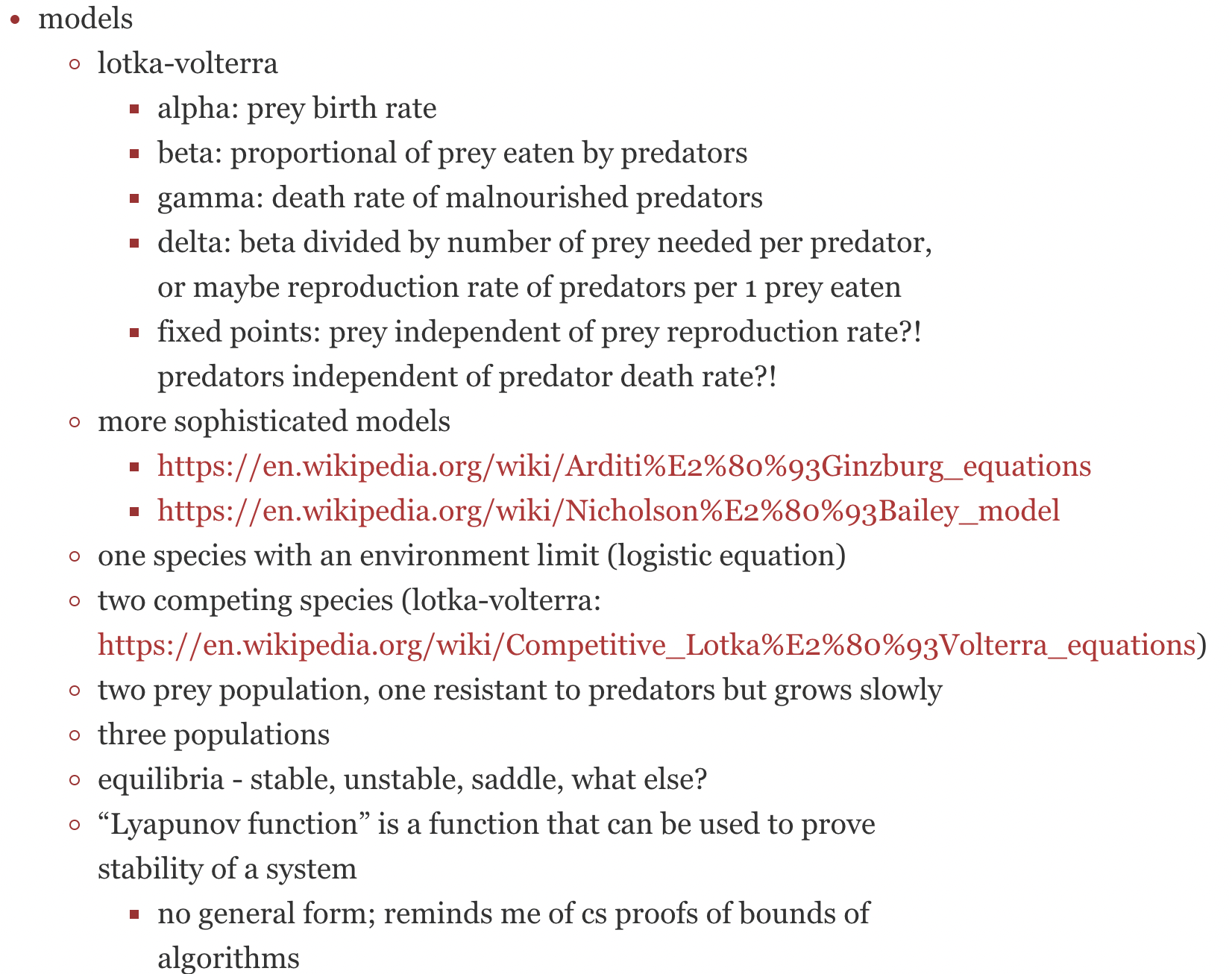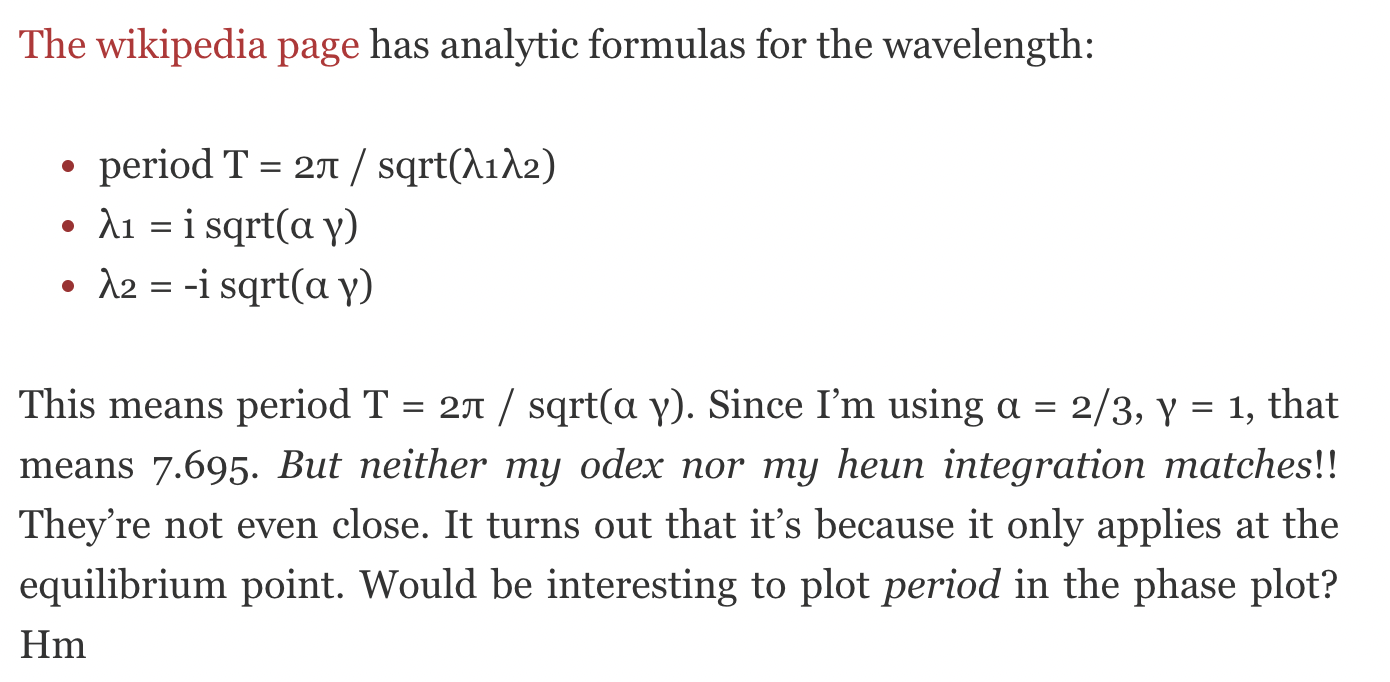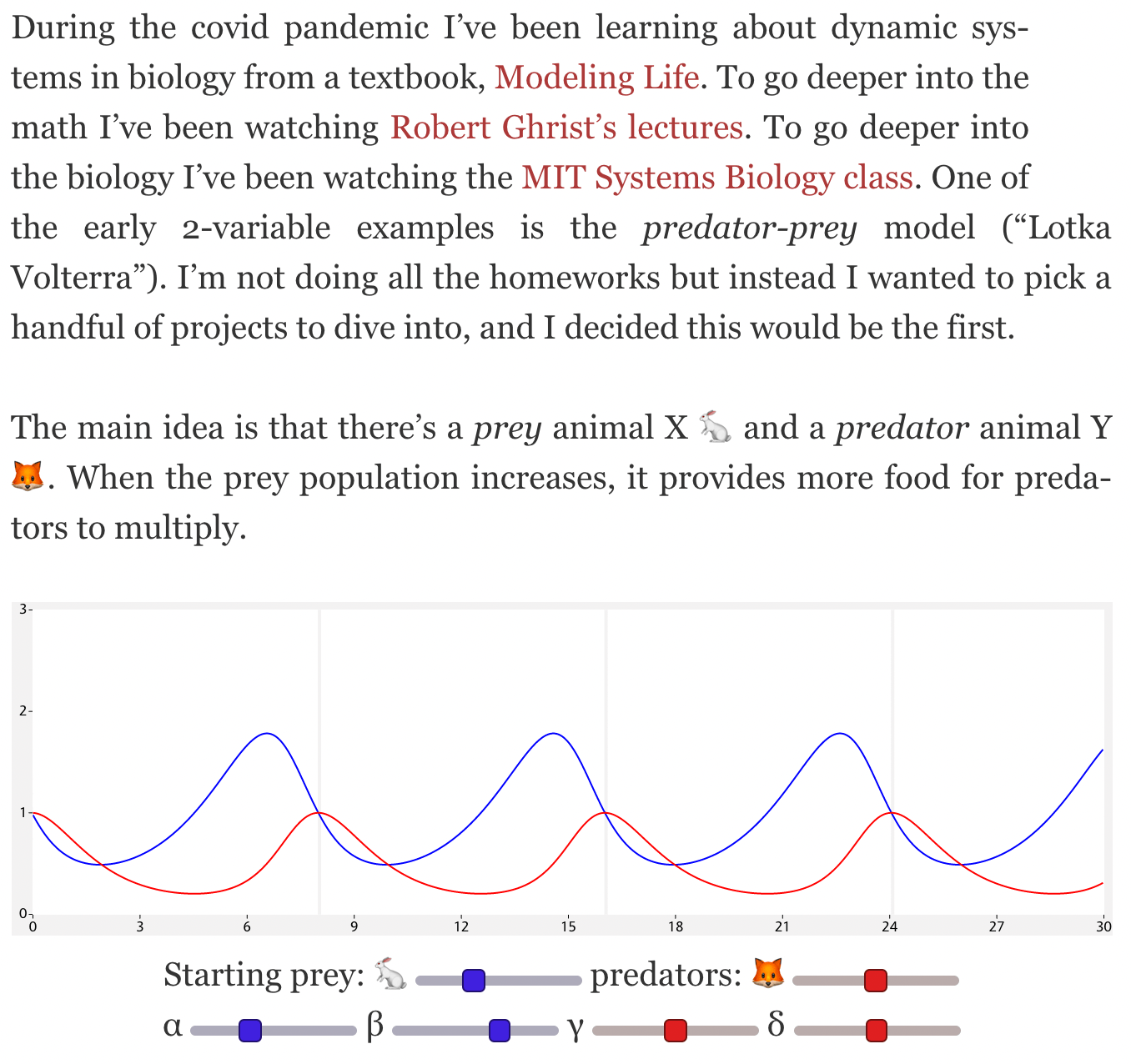I've been learning about the mathematical modeling of predator-prey relationships. The idea is that as the population of a prey animal (like mice) increases, the population of a predator animal (like foxes) will increase because they have lots of food. But then the mice will be eaten so their population will decrease, and then the population of foxes will decrease, and the cycle will start over again.
This blog post isn't about predator-prey though. It's a peek at how I learn things with note taking (see my previous blog post) and small projects. You might have seen some of my many lightweight explanation pages (examples: noise, hexagons on a sphere, organic cave maps) but they often don't start out that way.
I tend to learn things slowly. I have to read a textbook or paper many many times before I get it, if at all. If it's not for a class or job I'll often give up unless I'm motivated to learn it. I create projects to motivate myself to learn something. In the past those projects were games, but these days it's often web pages with a demo or explanation of the topic I'm learning.
Since I'm reading or watching the material many times, I can take a different approach each time. The first time through I take notes on paper. I find paper to be the best for unstructured notes. I can sketch pictures. I can make arrows. I don't have to follow any format. There's something about writing that helps me understand things.
However, my paper notes don't work the second time through. I find myself writing the same thing again, which is less effective for me. I now type into a text file the second time through, often in some outline form. I include notes, questions I have, things I find surprising, URLs for related topics, etc. Here's an example:

I could keep reading or watching the material over and over but I find it's often useful to stop and do something else at this point. Coding a mini-project forces me to demonstrate my understanding. Sometimes I think I understand something, but the project makes me realize I don't, like this example where I thought I understood the periodic nature of the predator-prey relation but it turns out my calculation doesn't match the formula I had read:

As I work on the project, I answer some of my questions from my outline, but also add new questions. Sometimes the project doesn't work out, as with the color yellow page. Sometimes the project ends up taking me in an unexpected direction, such as the rendering topic here and I don't end up coming back to learning the original topic. That's ok. Not everything will work out.
In the case of the predator-prey topic, I'm still slowly going through the material and slowly working on the notes page. It's something I spend a few hours a week on.

Will it lead to a finished explanation page? I don't know. That's ok. My goal here is not to produce the output, but to use the output to help me learn something new. Back when I was a game developer, I made small games to learn things — economics, databases, scripting languages, cryptography, urban dynamics, geology, etc. These days I write small interactive web pages to learn things.
This is really great! Thank you for all your tutorials!
Post a Comment